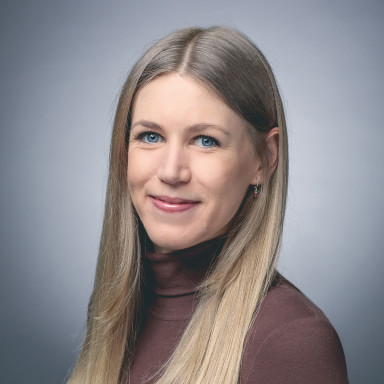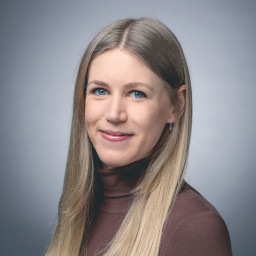Alexander Darwall has been the trust’s lead manager since it launched in 2000 and has over three decades of experience investing in European companies
The manager's focus on ‘special’ companies has helped deliver impressive results since launch
After a difficult few years, the trust has performed well more recently, helped by investments in companies such as Novo Nordisk
How it fits in a portfolio
The European Opportunities Trust invests in high quality companies that offer good growth potential over the long run. Almost 75% of the trust is invested in the UK, France and Germany, with the rest spread across Denmark, Finland, Spain, Norway and the Netherlands. Although the manager invests in higher-risk small and medium sized companies, most of the trust is made up of larger, more established European companies.
We think the trust could be a good choice for exposure to European companies or help form part of a wider investment portfolio focused on long-term growth. When investing in closed-ended funds you should be aware the trust can trade at a discount or premium to net asset value (NAV).
Manager
Alexander Darwall is considered a veteran when it comes to investing in European companies and his career spans across three decades. He started his career as an equity researcher at Goldman Sachs and later joined Jupiter Asset Management in 1995. During his time with Jupiter, he became the Head of Strategy for European equities and managed European funds. He’s managed the European Opportunities Trust since it launched in November 2000.
In 2019, Darwall left Jupiter to launch Devon Equity Management (DEM), where he’s now Chief Investment Officer. When he left Jupiter, he took the European Opportunities Trust with him.
Darwall has the support of the wider investment team at DEM, including senior fund manager Luca Emo, who also moved from Jupiter. Charlie Southern joined the firm in 2020 as a fund manager, James Bird in 2021 as a research analyst and more recently Angus Denison-Smith also as an analyst.
While Devon is much smaller than Jupiter, Darwall believes the size and focus of the firm means he’s more supported and resourced than ever. He’s able to focus more of his time on fund management and can call upon a close-knit team that can provide challenge and debate when it comes to investment decisions.
Process
The investment process remains the same since Darwall’s move to DEM and he continues to look for ‘special’ companies. To earn this title, companies must meet several criteria, though two shine through. The first is whether a company can withstand its competitors to grow stronger over the long run, and he prefers businesses that provide a product, service or unique advantage others will struggle to replicate. The second is that the company can grow and flourish in a variety of economic environments. Some of these companies carry out business globally, which means they're not only dependent on customers in the European countries they're based in.
Companies with strong balance sheets, little to no debt, high recurring revenues and stable cash flows are also favoured. They must be able to demonstrate strong pricing power - the ability to pass on rising costs to consumers without denting demand too much. An emphasis is also placed on a company’s culture and governance. Businesses need to be fully aligned with shareholders and if they can evidence strength in this area, it can lead to success over the long term.
Having a long-term focus typically means changes aren’t made to the trust too often. The manager tends to invest in a relatively concentrated number of companies, which means each investment could have a big impact on performance and increases risk.
New companies added to the trust this year include airliner Ryanair, Prysmian, which manufactures electrical cables for use in the energy and telecoms sectors, pharmaceutical company Camurus, and biotechnology firm Genmab.
At least one of three triggers must occur to sell or reduce an investment. The first is if the business model is failing and looks like it could be longer term. The second is if the manager identifies more exciting opportunities elsewhere. The third is based on valuations, for example if the share price of a company is too high and the manager no longer sees as much potential for growth.
This year, the managers have sold some shares in their investment in pharmaceutical company Novo Nordisk. They still see lots of potential in the company, but it’s performed strongly this year and therefore continued to make up a larger portion of the trust. Selling shares in the business means the size of the investment is kept in check and means the managers can invest the profits in new opportunities.
Investors should be aware that the managers use gearing (borrowing to invest) which can magnify any gains or losses and increases risk.
Culture
DEM was launched in 2019 and prides itself on its collegiate culture. It also promotes a strong focus on shareholders' interests and ensures they align with those of fund managers. Each manager sees themselves as part owners of the trust and invest a large portion of their own wealth in it. This helps make sure the trust is run in a way that benefits all shareholders.
The board has also implemented a more enhanced risk management process. This was introduced after Darwall’s previous investment in German fin-tech company Wirecard. The investment eventually made up a significant part of the trust – such a large investment in a single company can have a greater impact on performance, both positive and negative. In this case, Wirecard was exposed for fraud which led to the collapse of the company. This hurt the trust’s performance and was a reminder of the risks of owning such a large stake in any one company.
Managers over their career will make mistakes, but it’s the lessons learned that could improve the potential for long-term success. Implementing a better risk management process means Darwall, and other managers at DEM, now can’t invest more than 10% in a single company at the time of purchase. His co-manager Emo also has veto rights on when they look to add to an investment.
This puts Darwall's investment decisions under more scrutiny, without limiting his ability to build a strong portfolio and allowing him to run money in a style that has done well over the longer term.
ESG Integration
DEM's employees are given the flexibility to integrate environmental, social and governance (ESG) considerations in a way that best fits their investment approach. Darwall is mainly focused on governance because he believes understanding and assessing a company’s culture is crucial to long-term success.
The fund managers engage with the companies they invest in on a range of issues, including board make-up and remuneration concerns.
The trust managers are responsible for voting and will consider each company resolution on a case-by-case basis. They believe voting is critical to fully understanding the company and the way it’s managed. The firm provides a good level of transparency around their voting activities. The full voting record can be found on DEM’s website, and rationales are provided in cases where the team votes against company management.
Cost
The ongoing annual charge over the trust’s financial year to 31 May 2023 was 1.02%. Investors should refer to the latest annual report and accounts, and Key Investor Information for details of the risks and charging structure. If held in a SIPP or ISA the HL platform charge of 0.45% (capped at £200 p.a. for a SIPP and £45 p.a. for an ISA) per annum also applies. Our platform charge doesn’t apply if held in a Fund and Share Account. As investment trusts trade like shares, both a buy and sell instruction will be subject to the HL share dealing charges. There is no dealing charge within a Junior ISA.
Performance
The trust has performed well since it launched in November 2000. Over this period, it's returned 841.87%* in share price terms vs 249.39% for the MSCI Europe index. Remember past performance is not a guide to the future. Investments and any income they produce can go down as well as up in value, so you could get back less than you invest.
While long-term performance remains strong, the trust went through a few difficult years from 2019 to 2022. In addition to Wirecard, pharmaceutical firm Bayer has performed poorly. Darwall notes its corporate governance standards haven’t been as high as expected, though it has recently appointed a new CEO which may help. Grifols, a Spanish producer of blood plasma-based products, has also been weaker than expected, though the managers continue to believe it’s a leader in its industry and its innovative solutions makes it hard to compete with.
More recently, over the past year the trust has grown 13.28% vs 8.14% for the MSCI Europe index. Novo Nordisk was one of the strongest performers over this time, boosted by an increase in demand for some of its diabetes and obesity drugs, particularly in the US. Investment firm Intermediate Capital Group and French engineering company Gaztransport & Technigaz have also performed well.
Given the concentrated nature of the trust, we expect performance to be volatile and quite different from peers and the broader European stock market at times. That said, Darwall has used the same investment process for many years and it has the potential to deliver good long-term returns. Although, of course there are no guarantees.
Annual percentage growth
Nov 18 – Nov 19 | Nov 19 – Nov 20 | Nov 20 – Nov 21 | Nov 21 – Nov 22 | Nov 22 – Nov 23 | |
|---|---|---|---|---|---|
12.66% | -11.76% | 13.34% | -9.28% | 13.28% | |
MSCI Europe | 12.82% | 1.84% | 15.94% | 1.19% | 8.14% |

